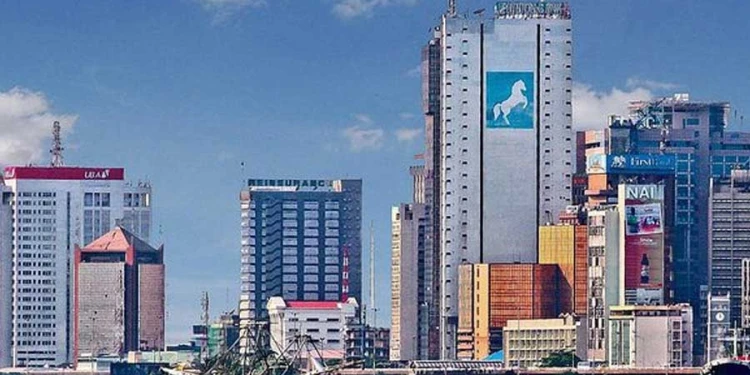
Credit: Nairametrics
Credit rating agency Fitch Ratings said Nigerian banks can withstand a depreciation of the naira.
Fitch disclosed this in a recently released statement titled “Nigerian Banks’ Capital Resilient to Naira Depreciation.â€
This comes barely two weeks after the Bank of America projected that the official exchange rate could likely be devalued to N520/$ in 2023 because it is well above fair value.
Naira redesign partly responsible for naira crash: The Central Bank of Nigeria announced last month that newly redesigned N200, N500, and N1000 notes would start circulating from December 15. The apex bank also gave Nigerians 100 days to deposit the old naira notes in their possessions before they become illegal.
Since then, there has been a significant increase in the demand for dollars, causing the naira to crash to a historic low.
Naira depreciates despite higher oil price: Fitch noted in its report that the naira had weakened by 4% against the US dollar this year, despite oil prices averaging $102/barrel. The report attributed this to Nigeria’s much lower oil output caused by oil theft. As a result, the country has been unable to earn more foreign currency.
It also identified high fuel subsidies which cost about 25% of Nigeria’s external reserves, as one of the factors responsible for Nigeria’s forex crisis.
But despite the challenges, Fitch said Nigerian banks will be able to withstand the depreciation of the naira. Part of the report said:
- “Nigerian banks’ capitalisation would be fairly resilient to further naira depreciation given their long net foreign-currency (FC) positions and small FC-denominated risk-weighted assets (RWAs), Fitch Ratings says.
- “The capital impact from higher credit costs would be offset by higher pre-impairment operating profits, underpinned by FX revaluation gains. Fitch said, “Capital ratios have strengthened in recent years, providing greater buffers against FX and asset-quality risks. Even a sharp fall in the naira should not in itself trigger downgrades. Nigerian banks’ main ratings sensitivity is to a change in Nigeria’s ‘B’/Stable rating.â€
The credit rating agency also stated that Nigerian banks are less exposed to naira depreciation in 2022 compared to their exposure level in 2016. “Currency depreciation weakens banks’ capital ratios by inflating FC-denominated RWAs. However, in Nigeria, this is mitigated by large FC translation gains, supporting internal capital generation. Banks are less exposed to naira depreciation than in 2016 when the naira fell 40% against the US dollar. Since then, banks have reduced FC-denominated RWAs by limiting FC lending, and all Fitch-rated Nigerian banks have long net FC positions,†Fitch said.
Fitch also stated that the high-interest rates would significantly benefit the banking sector. Fitch said, “Rising interest rates will underpin profitability, helping to absorb FX and asset-quality risks. The Central Bank of Nigeria (CBN) has increased the monetary policy rate by 400bp this year – to 15.5% – to tackle inflation, and further rises are likely. Higher interest rates will benefit banks through loan repricing and higher yields on fixed-income securities. At the same time, funding costs will remain relatively low as over 70% of deposits are low-cost current and savings account deposits.â€
- “However, the CBN has also increased banks’ cash reserve ratio by 500bp to 32.5% to mop up excess liquidity, which dampens earnings. We estimate 18% of bank sector assets at the end-2021 were unremunerated cash reserves at the CBN – an opportunity cost worth about 20% of banks’ operating income,†Fitch added.






